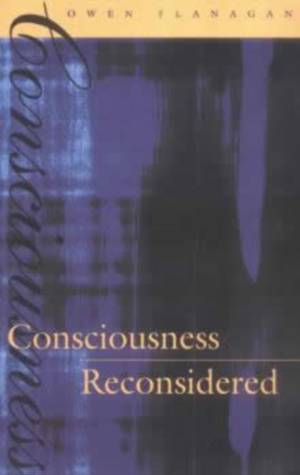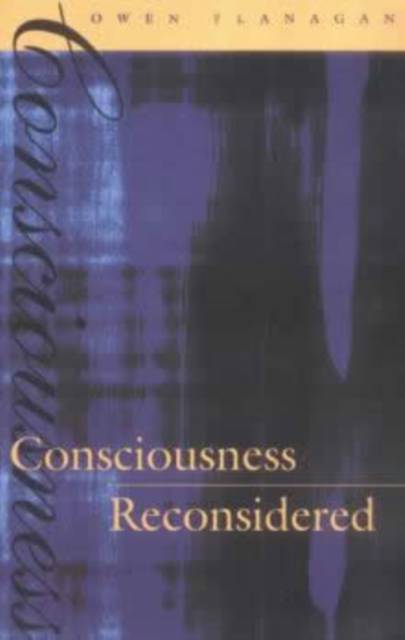
Je cadeautjes zeker op tijd in huis hebben voor de feestdagen? Kom langs in onze winkels en vind het perfecte geschenk!
- Afhalen na 1 uur in een winkel met voorraad
- Gratis thuislevering in België vanaf € 30
- Ruim aanbod met 7 miljoen producten
Je cadeautjes zeker op tijd in huis hebben voor de feestdagen? Kom langs in onze winkels en vind het perfecte geschenk!
- Afhalen na 1 uur in een winkel met voorraad
- Gratis thuislevering in België vanaf € 30
- Ruim aanbod met 7 miljoen producten
Zoeken
Omschrijving
Consciousness is neither miraculous nor ultimately mysterious. In this broad, entertaining, and persuasive account Owen Flanagan argues that we are on the way to understanding consciousness and its place in the natural order. No aspect of consciousness escapes Flanagan's probe. Qualia, self-consciousness, autobiographical memory, perceptions, sensations, the stream of consciousness, disorders such as blindsight, various kinds of amnesia, and multiple personality all find a place in a constructive theory that brings into reflective equilibrium insights from a wide array of disciplines to reveal the deep, rich, and complex hidden structure of consciousness.Flanagan roams freely through a variety of scientific and philosophical domains, showing how it is possible to understand human consciousness in a way that gives its subjective, phenomenal aspects their full due while at the same time taking into account the neural bases of subjectivity. The result is a powerful synthetic theory of consciousness, a "constructive naturalism," according to which subjective consciousness is real, plays an important causal role, and resides in the brain.Flanagan draws the reader into a world of exciting current debates among such philosophers as Thomas Nagel, Daniel Dennett, Paul Churchland, Patricia Churchland, and Colin McGinn, and he makes this world accessible. He masterfully weaves the latest insights from theory and research in cognitive neuroscience, neural darwinism, connectionist brain architecture, and PET scanners to reveal clear links between events that "seem a certain way" and underlying neural activity. William James's famous phenomenological analysis of consciousness and neurologically impaired characters from the writings of Oliver Sacks and A.R. Luria join the narrative, providing valuable insights into important current controversies on the relation of consciousness to self.
Specificaties
Betrokkenen
- Auteur(s):
- Uitgeverij:
Inhoud
- Aantal bladzijden:
- 252
- Taal:
- Engels
- Reeks:
Eigenschappen
- Productcode (EAN):
- 9780262560771
- Verschijningsdatum:
- 10/12/1993
- Uitvoering:
- Paperback
- Formaat:
- Trade paperback (VS)
- Afmetingen:
- 149 mm x 227 mm
- Gewicht:
- 394 g

Alleen bij Standaard Boekhandel
+ 58 punten op je klantenkaart van Standaard Boekhandel
Beoordelingen
We publiceren alleen reviews die voldoen aan de voorwaarden voor reviews. Bekijk onze voorwaarden voor reviews.









